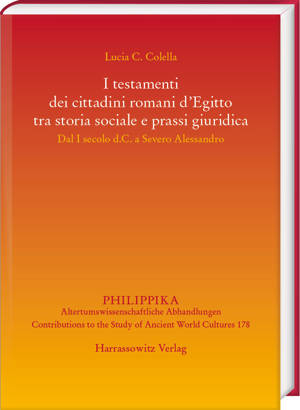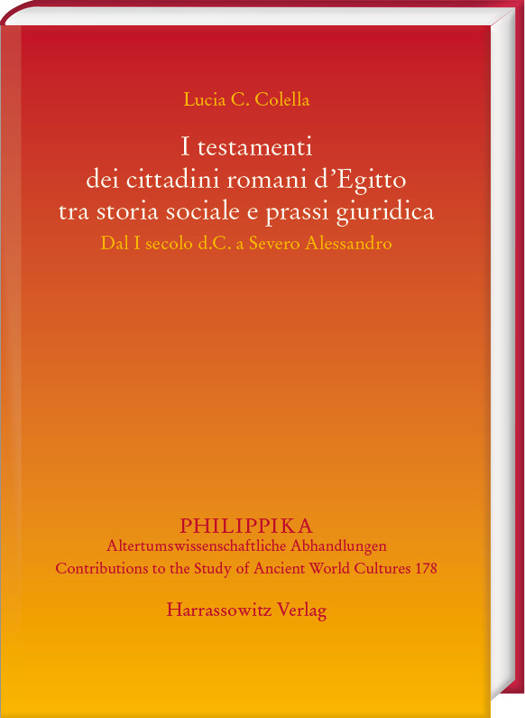
Bedankt voor het vertrouwen het afgelopen jaar! Om jou te bedanken bieden we GRATIS verzending (in België) aan op alles gedurende de hele maand januari.
- Afhalen na 1 uur in een winkel met voorraad
- In januari gratis thuislevering in België
- Ruim aanbod met 7 miljoen producten
Bedankt voor het vertrouwen het afgelopen jaar! Om jou te bedanken bieden we GRATIS verzending (in België) aan op alles gedurende de hele maand januari.
- Afhalen na 1 uur in een winkel met voorraad
- In januari gratis thuislevering in België
- Ruim aanbod met 7 miljoen producten
Zoeken
I testamenti dei cittadini romani d'Egitto tra storia sociale e prassi giuridica
Colella Lucia Consuelo
€ 96,95
+ 193 punten
Omschrijving
Lucia Consuelo Colella offers both a critical edition and a historical and juridical analysis of the documentation for Roman testamentary practice in Egypt prior to the constitution of Alexander Severus, which authorized the use of the Greek language in drafting Roman wills. Before this measure, the Roman citizens in Egypt, most of whom spoke Greek, used drafts and translations in Greek, as can be seen from the surviving documents. The material analyzed here includes Roman wills which have survived on wax tablets or papyrus both in Latin and Greek. There are 26 wills, one of which is identified for the first time and two unpublished documents on testamentary dispositions.The critical edition of these documents also takes into account paratextual and linguistic aspects, for the first time in some cases. The new information that emerges forms the basis for an analysis of the socio-economic profile and the language skills of the testators, beneficiaries and witnesses in relation to the groups of Roman citizens in Egypt for whom we have information from other sources, as well as reflections on the representativity of the papyrological sources with regard to the proportion of soldiers and veterans among Roman citizens in the province prior to the Constitutio Antoniniana. In the light of new textual information, it is also possible to address the relationship between Roman law and local practice in the period before the constitution of Alexander Severus, also in terms of the extension of the privilege of the so-called testamentum militis.
Specificaties
Betrokkenen
- Auteur(s):
- Uitgeverij:
Inhoud
- Aantal bladzijden:
- 487
- Taal:
- Engels, Italiaans
- Reeks:
- Reeksnummer:
- nr. 178
Eigenschappen
- Productcode (EAN):
- 9783447121613
- Uitvoering:
- Hardcover
- Afmetingen:
- 181 mm x 36 mm
- Gewicht:
- 190 g

Alleen bij Standaard Boekhandel
+ 193 punten op je klantenkaart van Standaard Boekhandel
Beoordelingen
We publiceren alleen reviews die voldoen aan de voorwaarden voor reviews. Bekijk onze voorwaarden voor reviews.









